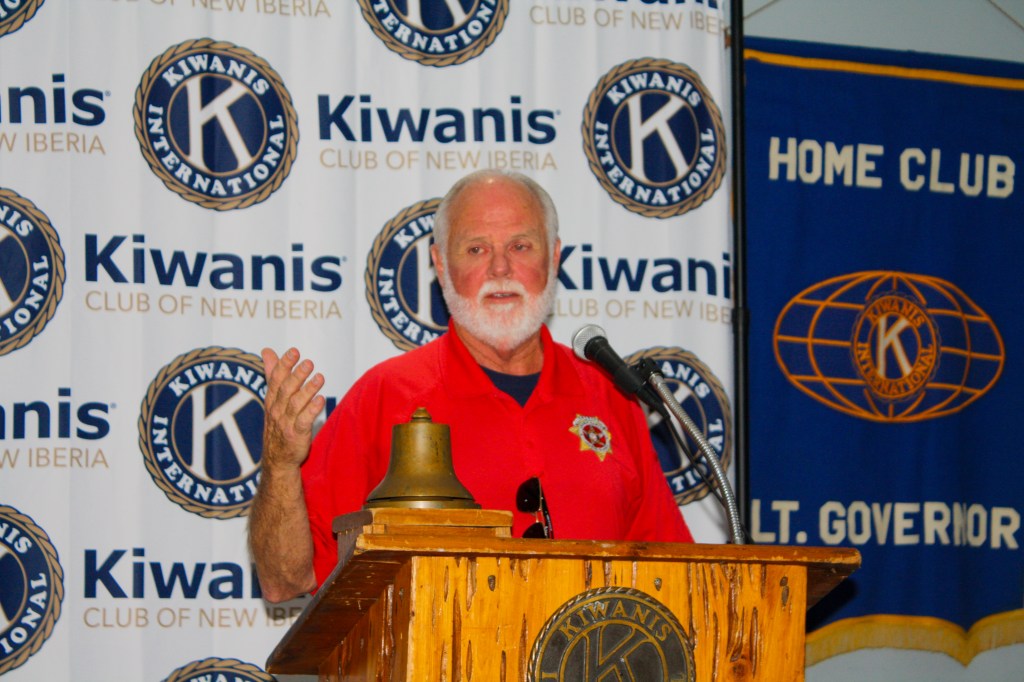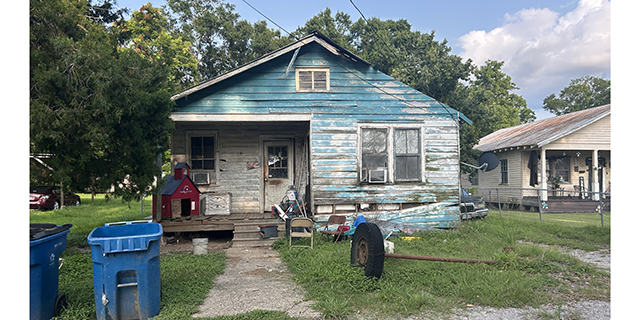Learning the details of concealed carry with Philip Ranken
Published 10:00 am Tuesday, January 23, 2024

- Deputy Philip Ranken discusses the details of acquiring and maintaining a concealed carry permit.
Deputy Philip Ranken with the Iberia Parish Sheriff’s Office explained the process of obtaining the Louisiana concealed carry license to Kiwanis members Thursday morning.
The average concealed carry course lasts nine hours between instruction and range practice. That includes an hour of instruction on handgun handling and nomenclature, instruction on ammunition handling and the fundamentals of shooting, handgun shooting positions and storage safety and a minimum of three hours of use of deadly force laws. Understanding use of force laws are incredibly important when handling a firearm for personal defense.
In Louisiana, use of deadly force is strictly allowed in a life-threatening situation that presents an imminent danger of death or great bodily harm. You cannot use deadly force on a fleeing attacker, only when they are presenting an active threat to you or someone else. This differs from states like Texas, where use of deadly force is permitted for protection of property.
The permit process includes a thorough background check by state police, which Ranken described as more rigorous than the background check for purchasing a firearm. He supplemented the claim with a story about a friend who, while acquiring his permit, was barred by the background check because of a fight he was involved in 30 years prior.
“He’d forgotten about the fight, state police didn’t,” Ranken said.
To acquire a permit, you must receive the concealed carry training certificate, which is valid for one year. Additionally, the process requires three notarized affidavits which expire after 60 days, so timely acquisition of the permit is key.
According to Ranken, the most important part of shooting a handgun is trigger control and consistent practice. Therefore, he recommends dry-fire practice at home to ensure adequate operation of the firearm when use is necessary.
The Louisiana concealed carry permit lasts for five years and applies to 37 other states, however it is necessary to research the difference in other state laws. While other concealed carry permits apply in Louisiana, residents of the state must acquire their permit from the state itself. As a Louisiana resident, a license acquired in Mississippi would not be valid.
There are a few other rules that apply to individuals practicing concealed carry, like your blood-alcohol content cannot exceed .05, as compared to the DUI limit of .08. If pulled over with a firearm and a concealed carry permit, this must be expressly stated to the officer. There are several locations where firearm possession is strictly prohibited despite a permit, including law-enforcement offices, detention facilities, courthouses (unless you are a judge), polling locations, government meeting places, schools, places of worship (unless authorized by the clergy) and anywhere with a firearm prohibited sign.
Louisiana is an open carry state, meaning anyone over the age of 18 can openly carry a firearm on their person, whether it be in a holster or slung on their back. If any part of the weapon is covered though, as by a jacket or pants, it is considered concealed. Ranken doesn’t recommend open carry, however, as it draws attention and could result in a less than ideal situation.
“In a shooter situation, who’s gonna get shot first? The guy that has the gun on his hip,” Ranken said.
Ranken became a concealed carry instructor when it was first introduced in law when Governor Mike Foster signed the bill April 20, 1996. As of August 2022, constitutional carry was legalized for veterans and active military personnel, allowing them to conceal carry without a permit. This doesn’t extend to other civilian citizens, but a law allowing it could be introduced. While Ranken said he would support a constitutional carry law, he believes in training, especially for use of deadly force laws.





